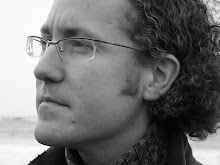August 21-25th 2011 I had the great fortune of attending the European Conference on Eye Movements (ECEM) in Marseille, France. This conference occurs every two years and I having attended it since 2003 I can say that this year was a roaring success. The quality of the presentations was second to none, the atmosphere was fun and sociable and Marseille is fantastically charismatic city in which to hold a conference. I presented two pieces of work. On the Monday I presented a poster on using eyetracking to inform film theory (see below or pdf here) which was very well received and gave me plenty of opportunity to ramble on about Von Trier, Welles, Intensified Continuity and the Society for Cognitive Studies of Moving Images (SCSMI). The poster was presented outside in a beautifully tree-line courtyard at the University of Provence, Marseille. Unfortunately, on the day of presentation the wind had whipped up and I spent most of my presentation holding on to my poster as it attempted to fly away. The result was rather comical for the audience but, the trooper that I am, I did not let it phase me and continued as enthusiastically as always.
If you are interested in reading more about the work presented in the poster you can see details of the cognitive readings of film in my Edit Blindness paper (Smith & Henderson, 2008; JEMR; here) and my modelling paper with Parag Mital (Mital, Smith, Hill & Henderson, 2011; Cog. Comp; here). The cinematic feature analysis will appear as a chapter in the book Psychocinematics published next year.
The second presentation I gave at ECEM was in a symposium on The Perception of Dynamic Scenes which I organised. This was a very successful symposium which turned out even better than I had hoped. Michael Dorr (Schepens Eye Hospital), Halszka Jarodzka (Heerlen), Sam Wass (Birkbeck), Daniel Richardson (UCL), and Ben Tatler (Dundee) all contributed to the symposium and presented a wonderful variety of perspectives of how we attend to and perceive complex, dynamic scenes. There was a real buzz about the potential for investigating dynamic scene perception at ECEM which culminated with the symposium. Over the last few ECEM there has been a growing interest in studying eye movements on video but technical, methodological, and theoretical limitations meant that very few people attempted it. Since the last ECEM in Southampton two years ago many labs have overcome these issues through significant innovations such as those provided by the DIEM project. We are now at an exciting tipping point which I am certain will lead to a sudden upsurge of empirical investigations of visual cognition with more naturalistic, dynamic stimuli. The potential insights into human behaviour and cognition this will provide are unlimited and I am looking forward to seeing the area develop and assisting it in anyway I can.
Thanks again for all the organisers of ECEM 2011, Marseille including Francoise Vitu and her helpers and I am looking forward to ECEM 2013 in Lund, Sweden!




